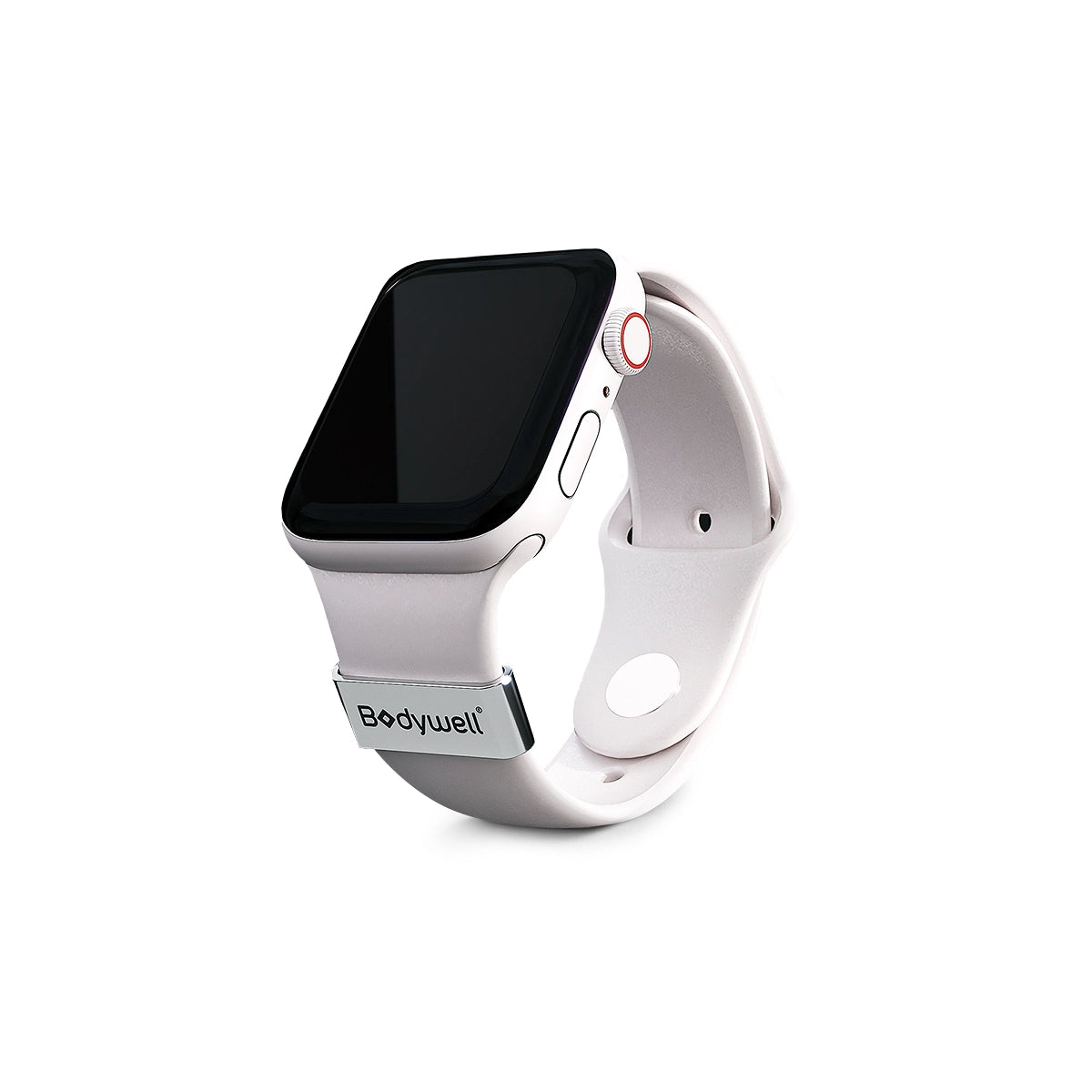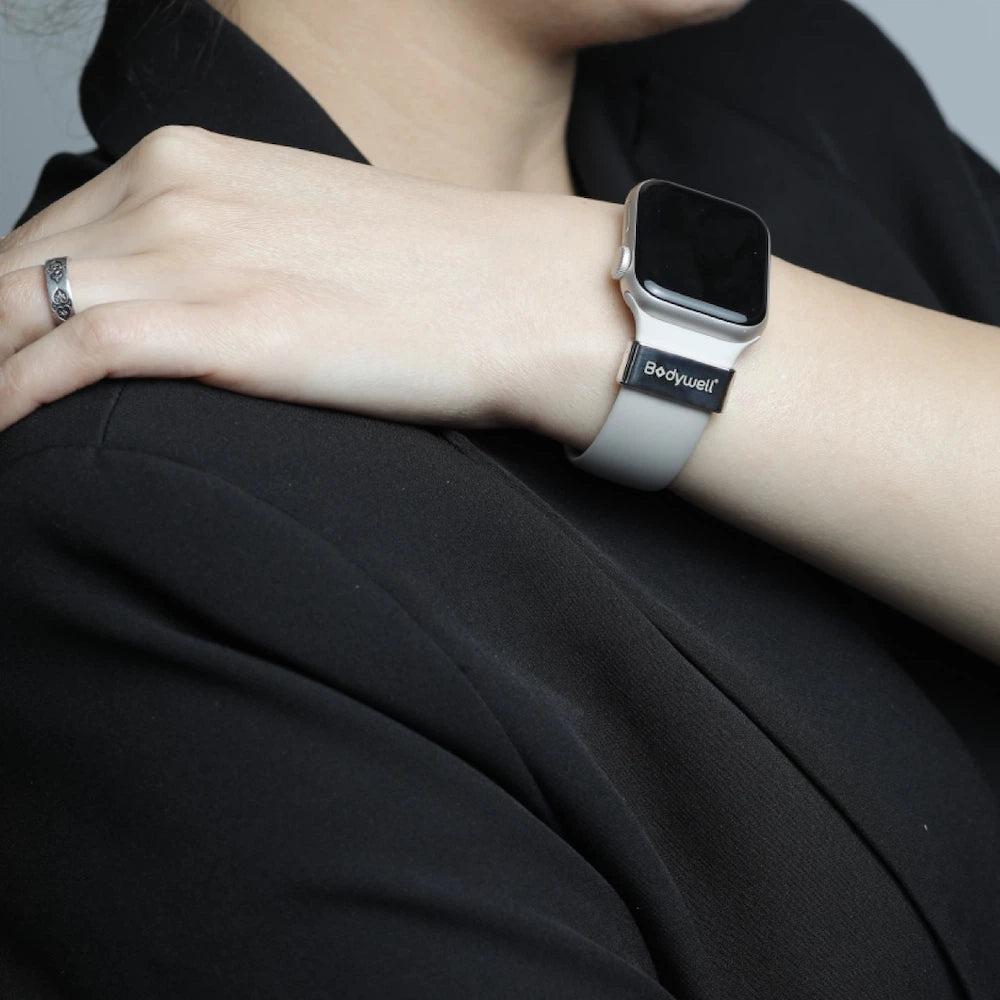Did you know that right now, your body is likely interacting with dozens of electromagnetic fields? From the smartphone in your pocket to the Wi-Fi router in your home, we live in an unprecedented era of EMF exposure. With over 4.88 billion smartphone users worldwide—more than 60.42% of the global population—EMF radiation has become an invisible companion in our daily lives.
As you read this, your device is emitting electromagnetic radiation. The same is true for the lights above you, the appliances in your kitchen, and the power lines outside your window. This omnipresent exposure raises an urgent question many of us are beginning to ask: Is EMF exposure bad for our health?
Should You Be Worried About EMF Exposure?
The International Agency for Research on Cancer said EMFs might cause cancer. Some people say they have electromagnetic sensitivity. Over 250 scientists want stricter safety rules on EMF radiation, but the US and other leaders disagree. That's why it's crucial to understand EMF exposure and radiation's effects on humans.
What are EMFs?
Everything around us is filled with invisible waves of energy. EMF radiation comes in different strengths. Some are weak, like radio waves, and others are strong, like X-rays. According to the World Bank, over 9 out of 10 people worldwide have electricity. This means that many of us are constantly surrounded by devices that give off EMF radiation.
Two Types of EMF
EMF radiation can be classified into two categories.

Non-ionizing Radiation
This form of EMF is safe for humans and is encountered daily. It's the most common type. Natural sources include sunlight and the Earth's magnetic field, while man-made sources include power lines and everyday appliances like hairdryers and microwaves. It also includes radio waves used in Wi-Fi and cell phone signals and infrared radiation from heat lamps.
Non-ionizing radiation lacks the energy to harm our cells' DNA directly. However, long exposure can lead to a mild warming of tissues. Also, scientists are still figuring out what happens to our bodies when we're around low amounts of radio wave energy for a long time.
Ionizing Radiation
High-energy EMF radiation can directly harm cells and their vital instructions, requiring EMF protection. Excessive damage can cause health issues like cancer. Fortunately, ionizing radiation carries more energy and is less common in daily life. Examples include the sun's UV rays and radon gas. People also observe high radiation levels in medical X-rays and gamma rays used in procedures and power plants.
Types of EMF Exposure
Understanding the different types of EMF exposure is important for understanding how they affect our daily lives.
Outside Your Home
- Transformers
- Power lines
-
Cell Phone Towers
- Radio and TV Broadcast Towers
Inside Your Home
- Wireless Devices (cell phones, tablets, Wi-Fi routers, cordless phones, baby monitors, wireless earbuds)
- Appliances (microwaves, ovens, refrigerators, dishwashers)
- Power Lines and Wiring
- Fluorescent Lights
Workplace Exposure
- Industrial Equipment: Manufacturing and telecommunications equipment often emit higher EMF levels
- Medical Imaging: Healthcare professionals working with X-rays, MRIs and CT scans experience regular exposure
- Office Equipment: Computer monitors, printers, and wireless networks create continuous low-level exposure
Exploring the Health Risks of EMF Exposure
Is cellphone radiation even a problem?
ABSOLUTELY!
Lyon, France, May 31, 2011 -- The WHO/International Agency for Research on Cancer (IARC) has classified radio-frequency electromagnetic fields as POSSIBLY CARCINOGENIC to humans (Group 2B), based on an increased risk for glioma, a malignant type of brain cancer , associated with wireless phone use.
Full press release hereInternational Scientist Appeal on Electromagnetic Fields & Wireless Technology
View appeal hereWith radiation's effects on humans becoming more mainstream, concerns about their health effects have grown. While the science is still evolving, let's explore some potential health risks associated with EMF exposure:
Cancer and Tumors
This is a major concern regarding radiation's effects on humans. Some studies suggest a possible link between EMF exposure, particularly from high-voltage power lines and cell phone use, and an increased risk of certain cancers, like brain tumors.
Thyroid cancer: Research from the Yale School of Public Health suggests that individuals with certain genetic profiles, particularly those with compromised DNA repair mechanisms, have an increased risk of developing thyroid cancer with higher cell phone use.
Breast cancer risk: Case studies suggest a potential link between prolonged cell phone exposure and breast cancer. Young women who carried phones in their bras for years developed tumors in the exact areas of contact, despite no genetic predisposition.
Other Health Issues
Research suggests potential connections between EMF exposure and other health problems, but these findings are often limited and require further investigation. Some examples include:
- Sleep problems: Some studies suggest a link between EMF exposure and difficulty falling or staying asleep. This could be due to the blue light emitted by electronic devices, which can disrupt sleep patterns.
- Headaches: While headaches are a common complaint, some people report experiencing them more frequently when using electronic devices for extended periods. This could be due to EMF exposure, eye strain from screens, or a combination of factors.
- Neurological conditions: A few studies have hinted at a possible association between long-term, high-level EMF exposure and an increased risk of developing neurological conditions like Alzheimer's disease. However, the evidence is weak, and more research is needed to confirm or dismiss this possibility.
- Digital Dementia: According to this research, smartphone use primarily stimulates the left side of the brain, while the right side, which is linked with concentration, remains untapped and eventually degenerates.
- Protein Expression in Skin: Research suggests mobile phone radiation may alter protein expression in human skin. In a study, ten volunteers had their forearm skin exposed to RF-EMF for an hour. Analysis showed changes in eight proteins, with two consistently affected across all participants, indicating a potential common response.
-
Mental Health: A study on power plant workers found that long-term exposure to ELF-EMF was linked to poor sleep quality, higher depression rates, and increased stress and anxiety. Technicians with the highest exposure reported the most significant effects.
Recognizing Symptoms of EMF Exposure
The health risks of EMFs are still debated. Many wonder about EMF toxicity symptoms. EMFs might affect nerves and brain function, but studies are inconclusive. However, some report symptoms they attribute to EMF.
Increase in enzyme function
Possibly leading to negative biological effects.
Brain damage
Possible alteration of the brain's electrical activity.
Memory loss and dizziness
Can lead to nausea and vomiting.
Nerve disorders
Possible weakness or loss of muscle strength.
Muscle spasms
Back, neck, and head pain are all possible side effects.
Tremors
It might make your voice sound shaky when speaking.
Joint pain
Causes discomfort affecting people’s ability to partake in daily activities.
Burning sensation
Many people have this reaction as a result of excessive RF absorption.
Headaches
Over exposure to RF absorption can be regarded as a probable environmental trigger for migrane headaches.
Skin rash
It can be quite uncomfortable for day-to-day living and cause low self-esteem.
Sleep disturbances (Insomnia)
Over exposure to EMF’s has been shown to cause insomnia in many people.
Increase in body temperature
Can cause damage to the body’s tissue, especially the eyes and testes.
It's important to note that these symptoms can have many causes, and experiencing them doesn't necessarily mean EMF exposure is the culprit. However, if you notice these symptoms improving when you're away from electronic devices or certain environments, EMF sensitivity might be worth considering.
How to Limit EMF Exposure: Practical Protection Strategies
The traditional approaches, such as spending less time on devices, increasing distance, or turning off Wi-fi and cellphones offer some benefits but are often difficult to maintain consistently.
For truly effective protection that doesn't require major lifestyle changes, specialized EMF protection solutions offer the most practical approach. Look for reputable brands that have undergone tests to ensure safety.

429+ five star reviews
Use your devices with peace of mind

Reduce annoying headaches

Enjoy better quality sleep

Feel less fatigued & lethargic

Protect your family
Final Thoughts
EMF radiation is a byproduct of our modern world, and while there's no conclusive evidence yet on long-term health effects, it's understandable to be cautious. Extensive research is ongoing, and like many new technologies, the long-term impact of non-ionizing EMFs on the human body remains unknown. For now, most health organizations consider low-level EMF exposure safe. But if taking precautions empowers you, there are easy steps to reduce exposure.
You can increase the distance from your devices, utilize speakerphone, or explore EMF-reading options for your environment. EMF-protection products are also available, but be sure to check if they underwent multiple tests to ensure they work and are safe. Completely avoiding EMFs is unrealistic, but having extra EMF radiation protection can give you a sense of control and potentially minimize risk. Since the long-term effects are still under investigation, taking precautions now might be helpful in case there are unexpected problems later.































Leave a comment
This site is protected by hCaptcha and the hCaptcha Privacy Policy and Terms of Service apply.